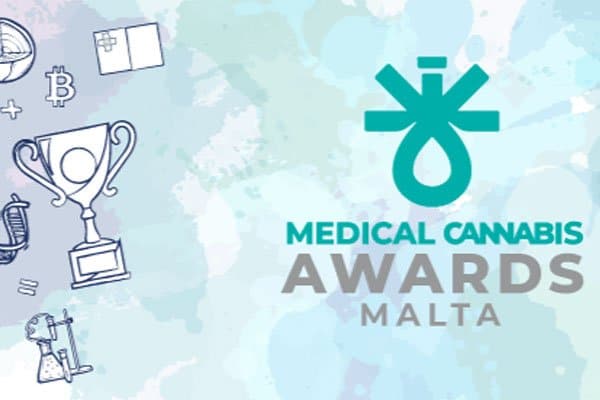
Michael Joe Cini
9th October 2019
The road to regulation for medical cannabis
Exploring the transition to a regulated market place for CBD
Following a January 2019 announcement that the European Food Safety Authority (EFSA) now classifies cannabidiol (CBD) products as unauthorised novel foods, the European CBD industry appears to have been put on notice that its grey market days are numbered. Richard Sharp, co-founder of Cobidol Group and Mountain Valley MD writes about the transition to a regulated market place for CBD. Just how quickly this regulation will occur and in which form it will take remains an open question.
The EFSA’s move to a regulated CBD market sits within a powerful global cannabis regulation trend. The stakes are high, as European players stand to be leaders in this emerging global industry.
From Canada to Colorado to Africa and beyond, restrictions on cultivation, processing and marketing of cannabis products are easing at pace, driven by consumer demand, increasing social acceptance and the promise of an economic opportunity not seen in generations. A recent report by Prohibition Partners projects Europe as the world’s largest cannabis market by 2023 with sales reaching £123 billion by 2028.
Seen as a driver for economic renewal, hemp cultivation for cannabidiol production is booming in low cost producing regions such as South America and Africa. In Europe, predictive market intelligence firm Brightfield Group estimated that the CBD segment of the cannabis market would grow 400% over the next 4 years to £1.5 billion. Regulators and industry will still face many important challenges during this transition. Let’s look at some of the market conditions and key challenges.
How we got here
Before January 2019, governmental agency EFSA allowed CBD to be used in foods without the novel food classification so long as the CBD concentration did not exceed the level in the source material. On January 17th, a new entry for cannabidiol changed that stating, “products containing cannabinoids are considered novel foods as a history of consumption (before 1997) has not been demonstrated.”
As a result, CBD went from being permitted for food in Europe to being considered a fully unauthorised novel food. Individual member states are now left to decide on the legality of CBD, and some are blocking sales based on the classification.
While arguments have been made that cannabidiol should not be classified as a novel food, as it has been present in food for over 2000 years, the EFSA sees the cannabidiol ingredient as an extraction of cannabis sativa that has not been used in foodstuffs pre 1997.
The Market
Given the use of CBD ingredients’ in multiple regulated market segments, getting the regulatory balance right will be critical for the emerging industry sectors and require dialogue and co-operation from all players in the supply-chain.
After decades of prohibition, deep understanding of the scientific, medical, social and economic complexities surrounding cannabis are in short supply, increasing the risk that key regulatory decisions are made based on poorly informed opinions rather than on facts. Clear policy objectives around product safety, ease of access, and pricing are needed to ensure regulations work. The risks of over-regulating and/or over-taxing can undermine policy objectives, leading to reduced access and high prices, perpetuating an entrenchment of the grey market.
Consumers
In spite of the uncertainty surrounding CBD products conforming to compliance standards, consumers across the EU are purchasing in droves. Attracted by high margins and surging consumer demand, many brands have proliferated, but as the market outpaces regulatory changes, confusion abounds for consumers unable to differentiate which brands adhere to quality assurance and labelling standards commonly observed in food supplements and pharmaceutical product categories.
One key challenge consumers face is being able to trust the labels on products. A 2017 study by the FDA in the U.S. and more recently by the Centre for Medical Cannabis in the U.K. found a majority of products are inaccurately labeled for the amount of CBD they contain. Beyond potential misrepresentation, product mislabelling becomes a safety issue as well.
Without accepted uses based on clinical trials, manufacturers are unable to make claims or share information relating to dosing, or the treatment of conditions. Consumer education is a gap that will need to be addressed.
The Industry
Since a majority of CBD manufacturers appear to be engaged in inaccurate labelling, this stands out as a major issue for the industry. Due to the lack of standardisation in cannabis testing methodologies among labs, it is well known that the same sample sent to 3 different labs can yield 3 very different results.
Furthermore, the wholesale market for CBD is still in its infancy, and without regulations, confidently sourcing certified ingredients is a challenge. Since manufacturers are able to retail CBD at 100 times or greater the ingredient cost, these kinds of margins can attract a wide variety of industry players, some of whom do not have a longer term focus on consumer interests. For example, it is well known in the industry that some ingredient certificates of analysis are fraudulent and cannot be relied upon.
Regulatory
The challenges faced in Europe’s CBD industry are similar to other jurisdictions and solving them will require open dialogue between regulators, healthcare professionals, industry and consumers, in order to reach balanced outcomes.
It’s important for regulators to realise that the emerging CBD market is not a fad – it’s a trend with millions of consumers across the EU, and it’s the leading edge of the global cannabis legalization trend. Furthermore, CBD is not THC, and for maximum social and economic impact they need very different regulatory pathways. The industry calls for a balanced approach, based on contemporary scientific facts.
To bring confidence to consumers, systems that support product traceability for recalls, information on product use and accurate labeling are needed. For manufacturers, a system to support verifiable ingredient provenance, testing standards and certification are needed.
The Future
The global CBD industry is set to surge over the next few years. Driven by consumer demand and high profit margins, the supply-chain from cultivation through processing, labs, manufacturing and retail will continue to grow and mature. Through open dialogue among industry stakeholders, a well conceived regulatory framework can serve as a platform to set a world standard, drive economic prosperity and propel Europe’s industry into global leadership.
Such a regulatory framework would be well served to utilise a common technology-based infrastructure, leveraging blockchain’s inherent ability to enable complex supply-chains, bringing trust into the CBD market.
Blockchain’s custodianship features assure provenance of batches of ingredients as they move through the supply chain, passing from one entity to another, enabling traceability and information veracity. A product’s authenticity can be verified and customers can receive educational information.
Through open dialogue and common sense approaches, the future looks bright for CBD in Europe.
The Medical Cannabiz World Summit will take place from the 4th to 5th November at the Intercontinental, St Julian’s, Malta, to be followed by the inaugural launch of the Medical Cannabiz World Asia Summit which will be held in Bangkok on the 22nd and 23rd of June 2020 at the Centara Grand Hotel.
Read more interviews like this in Cannabiz magazine – out now!






